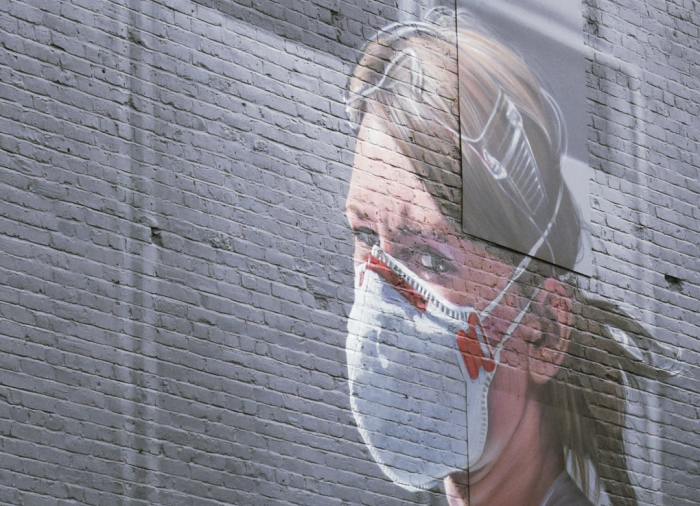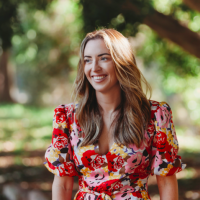We don’t pay grief enough homage—and it can bite us in the arse. Big time.
It’s not just about dead people or lost loved ones. It’s also about lost opportunity—lost dreams about how you thought things would be. Hope flushed down the drain when the news is so bad you can’t see recovery. We’re not able to fix, care, or be there for someone. Disappointments that build and sit on top of one another.
Grief is every day. For most of us, stuffed under the covers, behind closed doors, until we have something that we think is big enough to justify pinning it on.
Most of us don’t see this happening. On top of saving lives, our frontline health and social workers counsel big and small griefs every day. These are people who help others process their grief and they are worth their weight in gold.
I am pondering this as I stand outside a hospital I shouldn’t be at—I am outside my limited five-kilometer radius. If the police stop me, I am in for a potential financial penalty my credit card can’t take right now.
I am dangling a sign in my hand that says “I love you.”
I feel a bit pathetic. It’s the best I can do for my sister. I think about how terrible my handwriting is when hers is so damn beautiful. I wish I could write better for her. I don’t even know if she will see my sign out the window.
I’m not allowed to be where I am, let alone in the hospital. COVID-19 is at an all-time high in Sydney, Australia.
I watch my sister go through the hospital doors. I wonder if I will get to see her come out.
Tears streaming down my face, I feel the pain that I know so many people in history have felt. That so many people feel right now. We’re facing a potential or real grief of never getting to say goodbye to a loved one—to hold their hands when they are scared, sick, shocked. We want to look them in their eyes and send them love at their last breath—and to at least be there.
The first work experience position I chose at school was nursing. I found myself volunteering (rather, following nurses around whilst they put up with me) for a week.
I still have the photo my mum took of me in the backyard. I’m 16 years old, hair slicked back in a ponytail, dressed in all black in what I deemed were “office clothes.” I am holding a ring-bound folder full of blank lined paper for note-taking—ready to head to the hospital, the one I was born in.
I was ready to learn what it was like to be a nurse.
That week, I watched hospital staff deal with all varieties of bodily fluids and all the administration that went with it. I saw humans for what they can be like in stress, exhausted, annoyed, scared, terrified, mean, and grateful. The nurses told me stories of how people would peak in their unprocessed fear and grief, then let it all out with them and/or at them—the rainbow of reactions.
I saw loved ones rush in and out, and I spent a lot of time in a crappy hole in the wall lunch room when the nurses must have decided I was in the way or the situation was too much for a young adult. It was also in there where I got to see the staff take their masks off, when they enjoyed banter and decompressed through their connections with one another.
In the ward, alongside my assigned nurse of the day, I witnessed a lady take her last breath with no family by her side. No one but me and my assigned nurse.
I wondered why on earth I was allowed to be at such a momentous moment. I felt like an intruder.
I tried to be invisible as much as possible. I wanted to be there as much as I didn’t want to be there. I was wholly confused, not expecting nor prepared for the moment—not that you ever could be prepared.
I learnt about the rattled, pretty terrifying last breaths before death. I watched as the nurses wandered in and out like it was a normal day. It was a normal day.
I realised for the first time that people die on normal days—every day.
I marvelled at how they took care of this woman post last breath—the respect they paid. And the procedural way, the nurses carried out their routine. The two responses juxtaposed, hitting me in the stomach and throat. I had to return to the retreat, the lunchroom.
That week imprinted in me for life how intense frontline health and social worker and caring roles are.
I went back to school and heard about other students’ work experiences at offices and retail sites. I heard about a week of fun, some boredom, but not death. I couldn’t explain my experience; I didn’t even try.
I couldn’t reconcile the depth of responsibility nurses held. I was still reeling from what I had seen. All I could say was that nursing wasn’t for me.
I never returned to hospital duties, but I did work part-time in aged care and child care throughout university and had different experiences, yet the same insights remained.
Caring roles can be back and soul-breaking. They require all of a person, body, mind, and spirit—all of the time. And when they can’t step up to give that, whoever is in their care notices. And how much given in a limited period is often how they measure themselves on the job—as a success or failure.
People in these positions make an average or less than average wage and bear a much higher trauma load than those in other roles. Until we have experienced trying to soothe the piercing screams of a child with separation anxiety (or multiple at once), or reassuring those whose parents have dementia or being present to a patient’s sickness or death, it is hard to truly understand the value of these roles. And, COVID-19 has put this trauma load reality for workers on steroids. Office politics, spreadsheets, presentations, back-to-back meetings—they simply cannot compare.
Every person will rely on some form of frontline worker or carer sometime in their lives. When that time comes, it is likely never forgotten.
These people help us in times of need. When grief hits us, they are there. They look after, save, and care for those dearest to us. They reassure us and help process the emotions we never expected to have.
Nurses and doctors are the only people who will see my sister over the next few months. All I can do right now is helplessly stand outside with a sign, silently thanking them for looking after her. Most of us would agree, we can’t really put a price on the value roles like nurses bring, but it sure as hell has to be higher than the one we are currently paying it.











Read 2 comments and reply